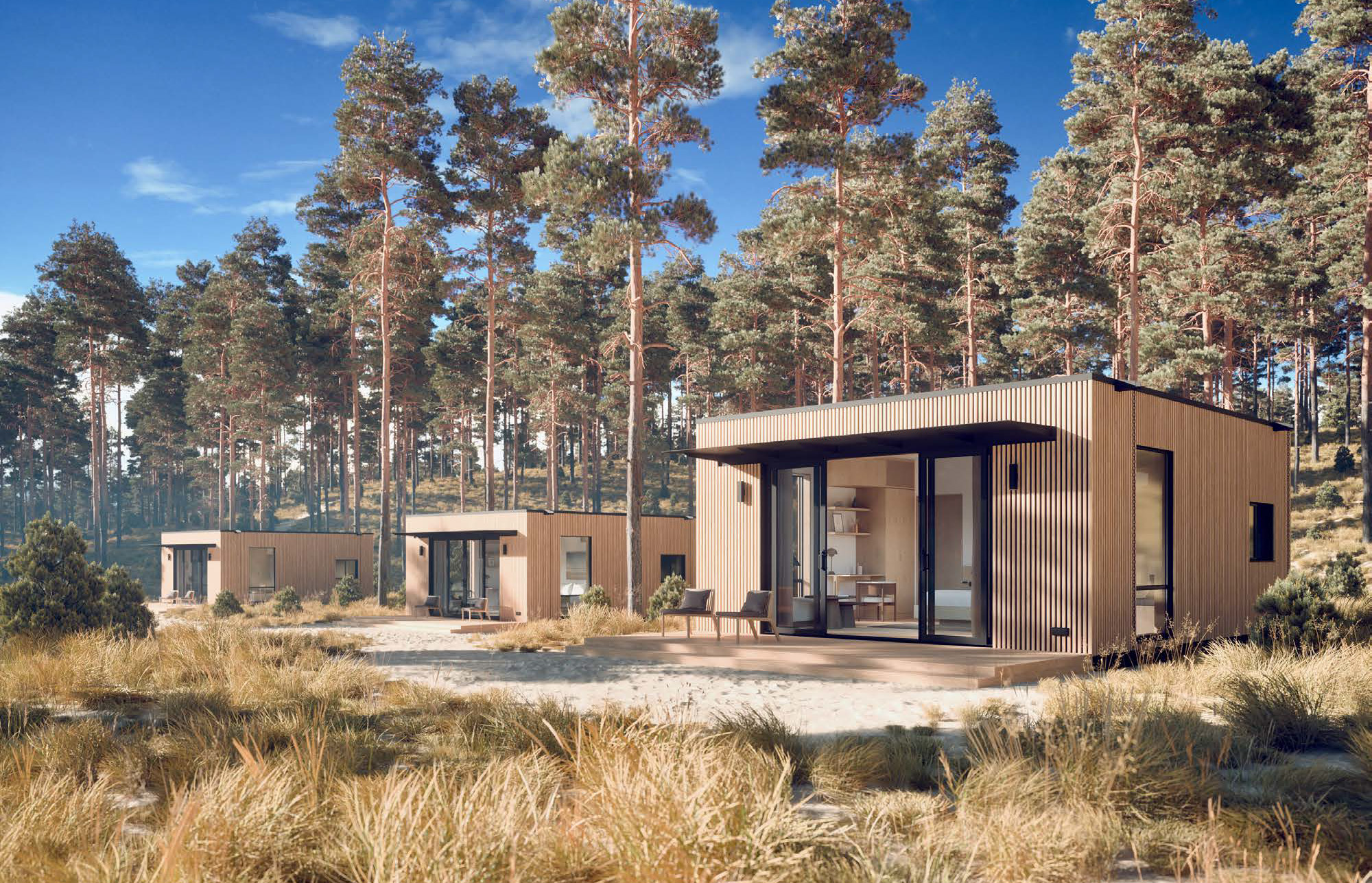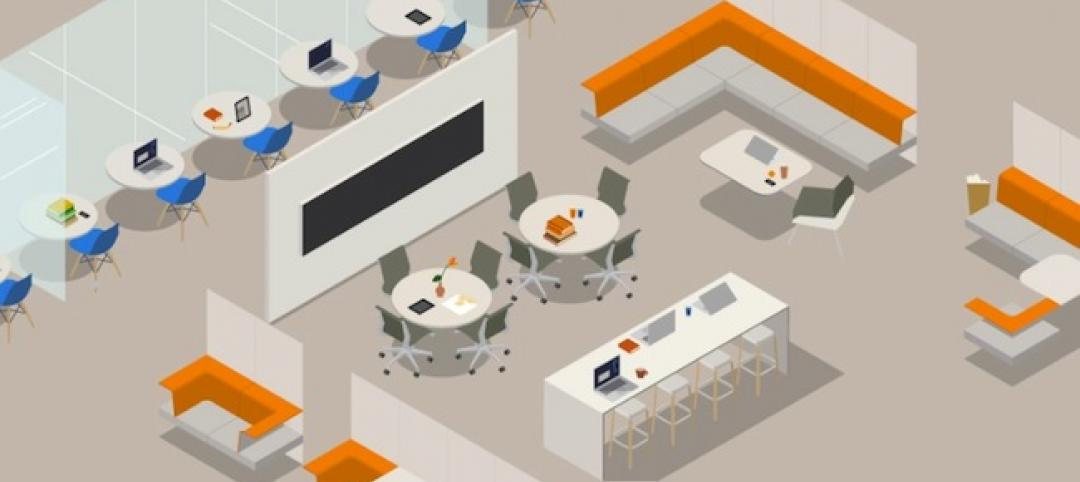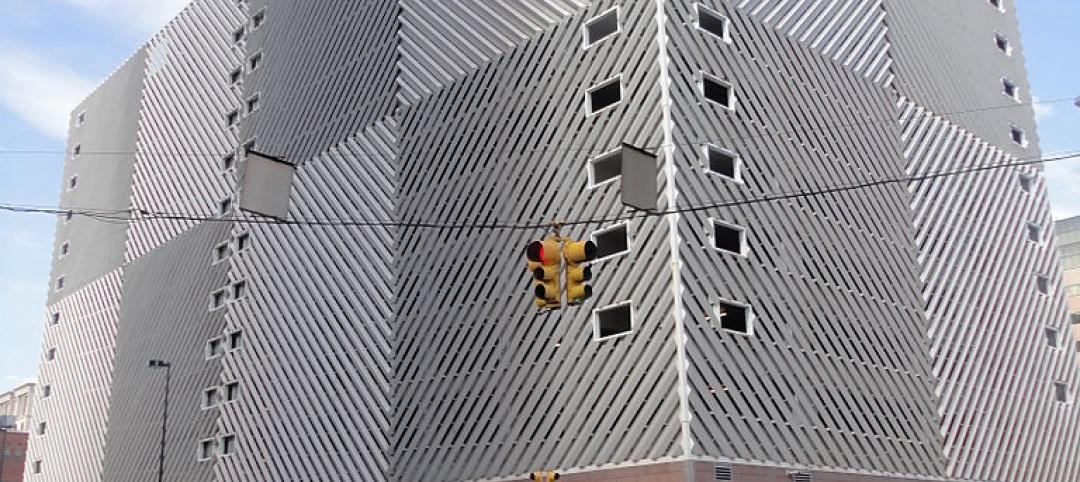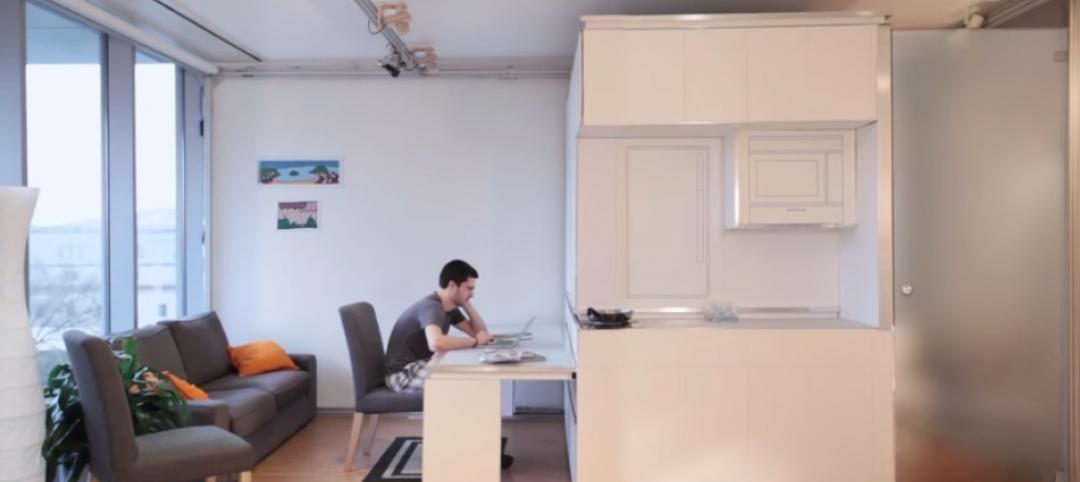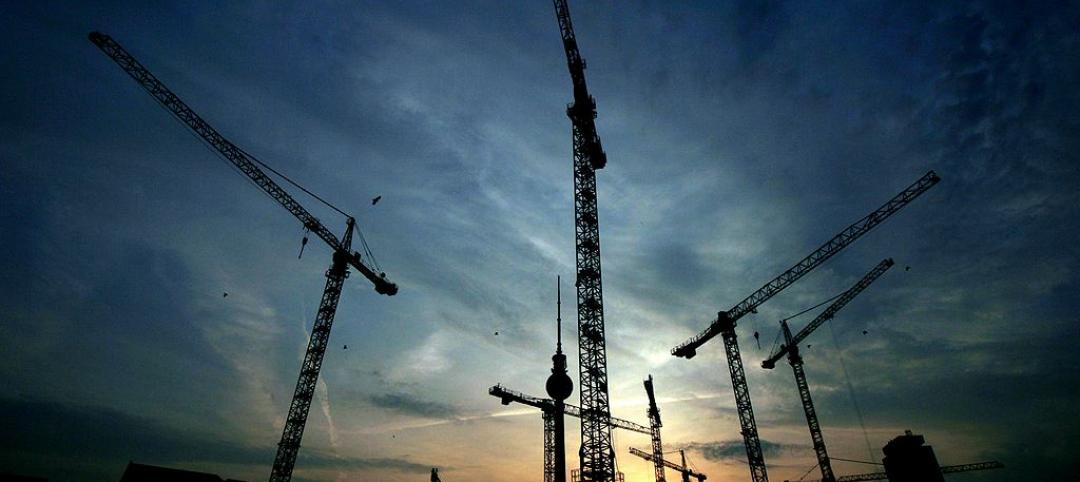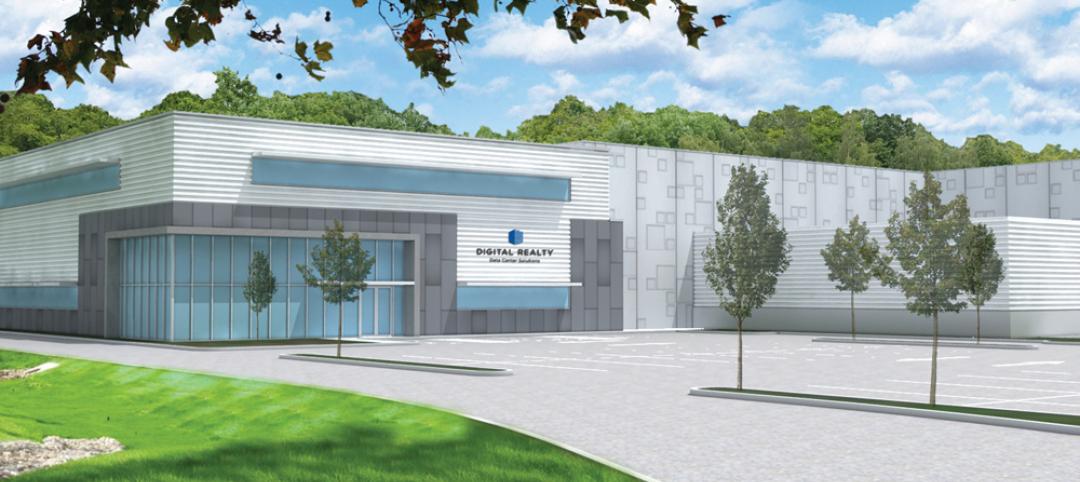The hotel industry has long been dominated by major global corporations, making it difficult for newcomers to break into the field without significant financial resources and industry connections. However, building startup Tomu Inc. wants to change the landscape by offering an innovative and accessible solution: modular hotel units.
Tomu Inc., a sustainability-focused development startup that designs and builds prefabricated housing units, has started production of its luxury hotel units. The startup's modular system provides aspiring hoteliers with turnkey hotel units, akin to upscale tiny house hotel rooms, that are sustainable, affordable, and customizable to cater to various audiences, including underserved travelers. Chris Osaka, CEO of Tomu Inc., emphasizes the company's mission to empower a more diverse range of hosts and hoteliers.
“Our sustainable modular hotel units save money and time, while providing the individual owner a realistic opportunity to enter into the hospitality industry," says Osaka. The CEO underscores that Tomu can bring concepts to life, from design to delivery, within a few months.
Building Customized Modular Hotel Units
The company's approach extends to various types of accommodations, from landscape hotels and cozy bed and breakfasts to compact micro hotels and food and wine-themed properties. Tomu's selling point lies in its proprietary prefab hotel units, which allow property owners to design their rooms with different aesthetics to target specific customer segments.
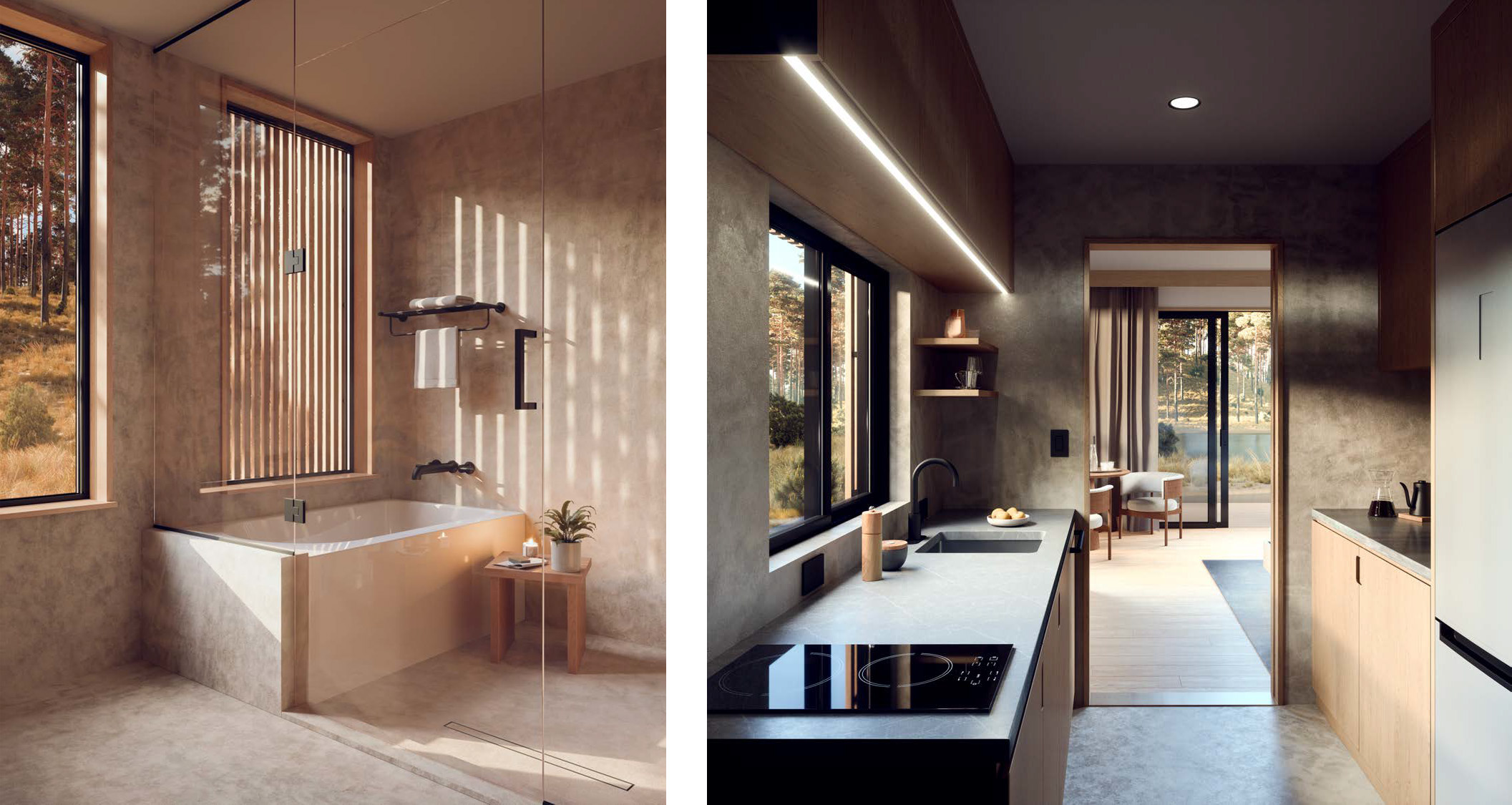
The process involves selecting a prefab unit shell from Tomu and working closely with a design team to fully customize the physical elements and desired design parameters. The company offers three levels of unit configuration:
- Ready To Stay: Tomu's line of detached guest units, known as the Villa Collection, come in studio, one-, and two-bedroom floor plans—all designed in a distinctive Tomu aesthetic. The Villa Collection caters to the evolving preferences of modern travelers, suitable for both short weekend getaways and longer stays.
- Made To Suit: Developer clients have the option to customize configurations of Tomu's Villa Collection to align with project requirements. The startup collaborates with developers to tailor amenities to match the project's unique concept.
- Fully Bespoke: Rather than maintaining Tomu's signature material palette and fixtures, this configuration gives clients full design control.
To support their vision, Tomu recently acquired a 15,000-sf production facility at the Hagerstown Regional Airport in Hagerstown, Md., in order to expand manufacturing capabilities and production by Q4 2023. Learn more about Tomu Inc. on the company's website.
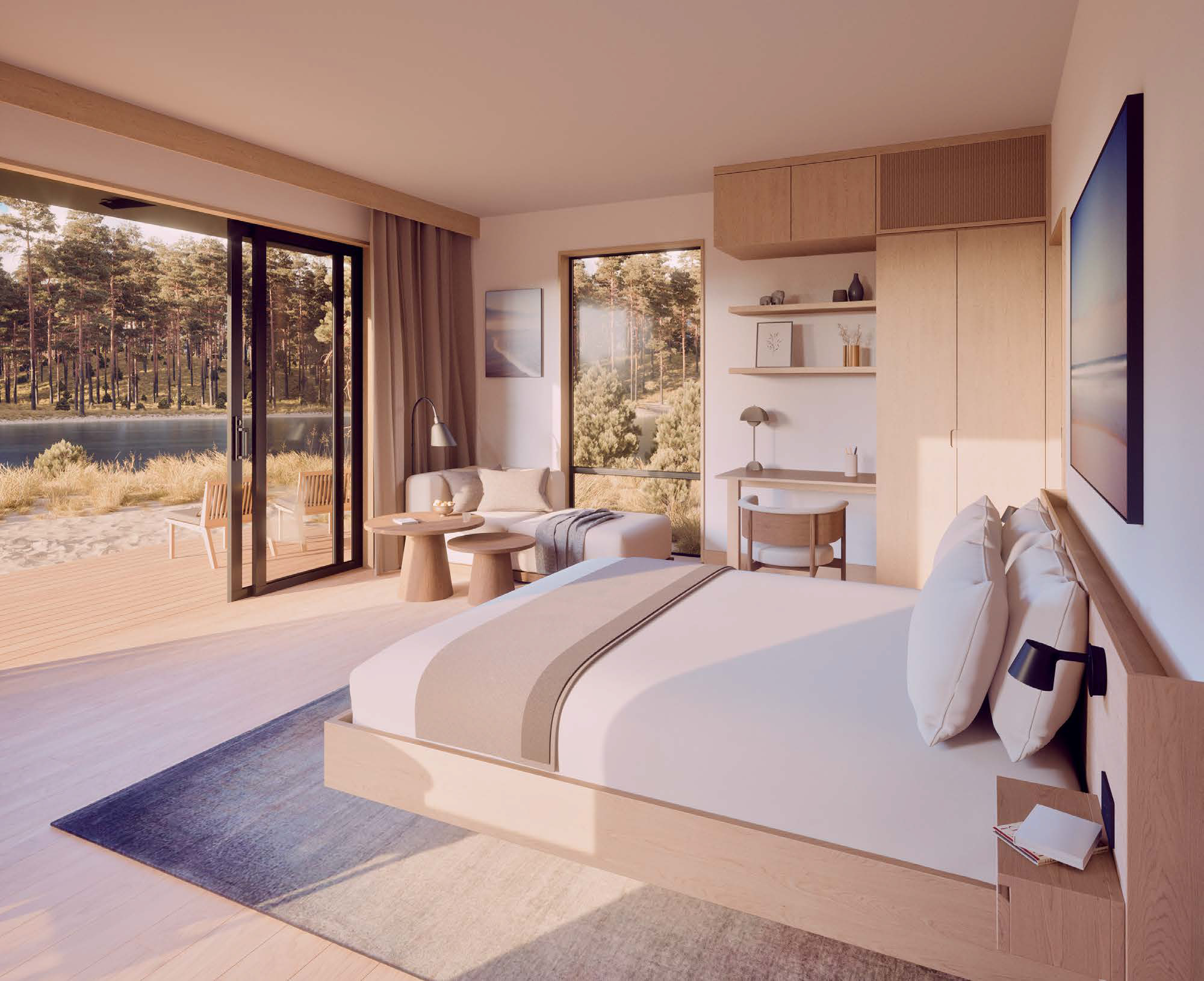
Related Stories
| Jun 12, 2014
Austrian university develops 'inflatable' concrete dome method
Constructing a concrete dome is a costly process, but this may change soon. A team from the Vienna University of Technology has developed a method that allows concrete domes to form with the use of air and steel cables instead of expensive, timber supporting structures.
| Jun 11, 2014
5 ways Herman Miller's new office concept rethinks the traditional workplace
Today's technologies allow us to work anywhere. So why come to an office at all? Herman Miller has an answer.
| Jun 9, 2014
Green Building Initiative launches Green Globes for Sustainable Interiors program
The new program focuses exclusively on the sustainable design and construction of interior spaces in nonresidential buildings and can be pursued by both building owners and individual lessees of commercial spaces.
| Jun 2, 2014
Parking structures group launches LEED-type program for parking garages
The Green Parking Council, an affiliate of the International Parking Institute, has launched the Green Garage Certification program, the parking industry equivalent of LEED certification.
| May 30, 2014
MIT researchers create 'home in a box' transformable wall system for micro apartments
Dubbed CityHome, the system integrates furniture, storage, exercise equipment, lighting, office equipment, and entertainment systems into a compact wall unit.
| May 29, 2014
7 cost-effective ways to make U.S. infrastructure more resilient
Moving critical elements to higher ground and designing for longer lifespans are just some of the ways cities and governments can make infrastructure more resilient to natural disasters and climate change, writes Richard Cavallaro, President of Skanska USA Civil.
| May 27, 2014
Contractors survey reveals improving construction market
The construction industry is on the road to recovery, according to a new survey by Metal Construction News. Most metrics improved from the previous year’s survey, including a 19.4% increase in the average annual gross contracting sales volume. SPONSORED CONTENT
| May 26, 2014
New Jersey data centers will manage loads with pods
The two data center facilities totaling almost 430,000 sf for owner Digital Realty Trust will use the company's TK-Flex planning module, allowing for 24 pods.
| May 22, 2014
BIM-driven prototype turns data centers into a kit of parts
Data center design specialist SPARCH creates a modular scheme for solutions provider Digital Realty.
| May 19, 2014
What can architects learn from nature’s 3.8 billion years of experience?
In a new report, HOK and Biomimicry 3.8 partnered to study how lessons from the temperate broadleaf forest biome, which houses many of the world’s largest population centers, can inform the design of the built environment.



